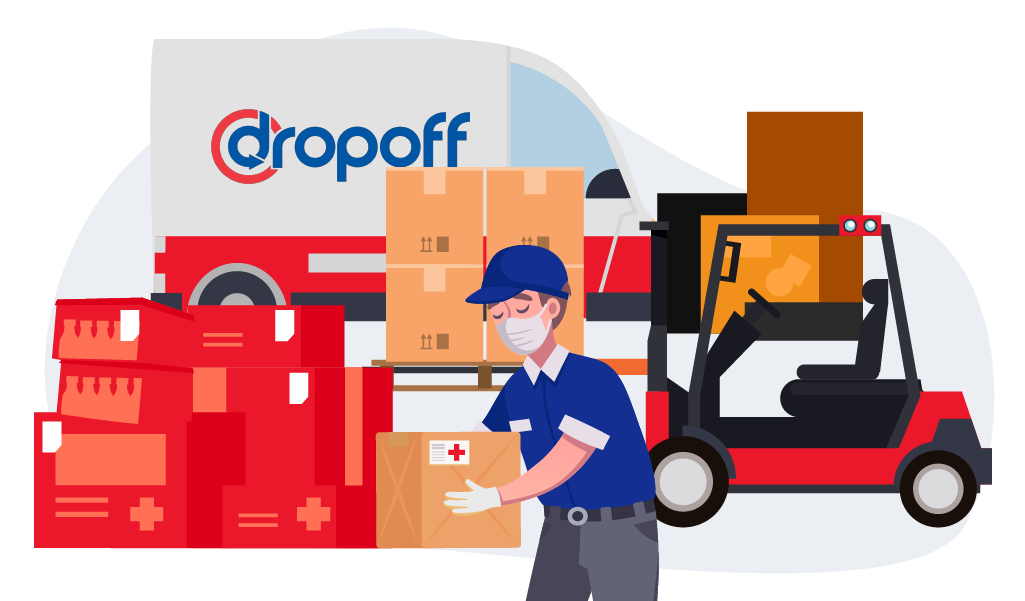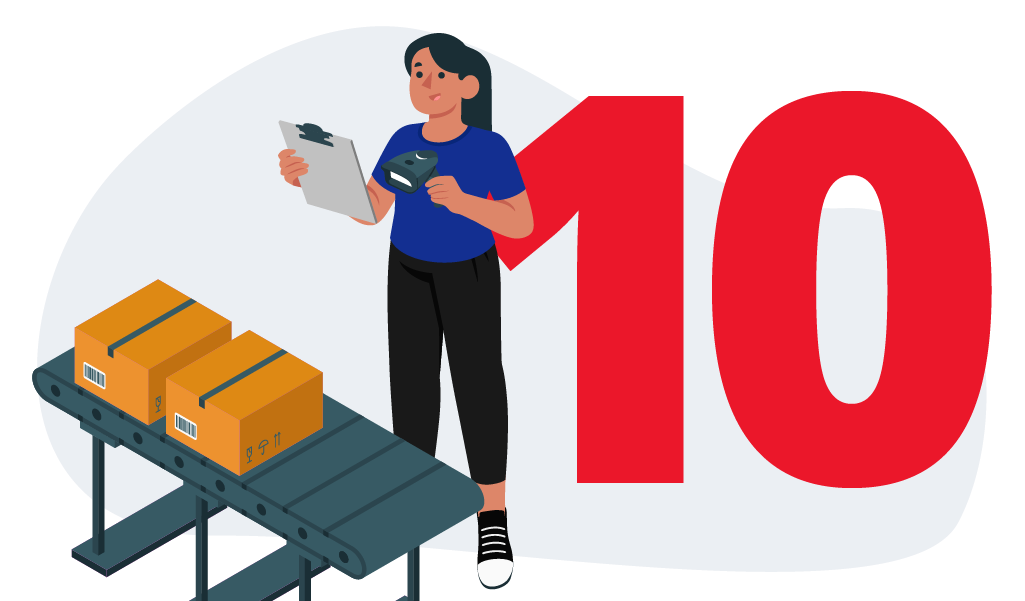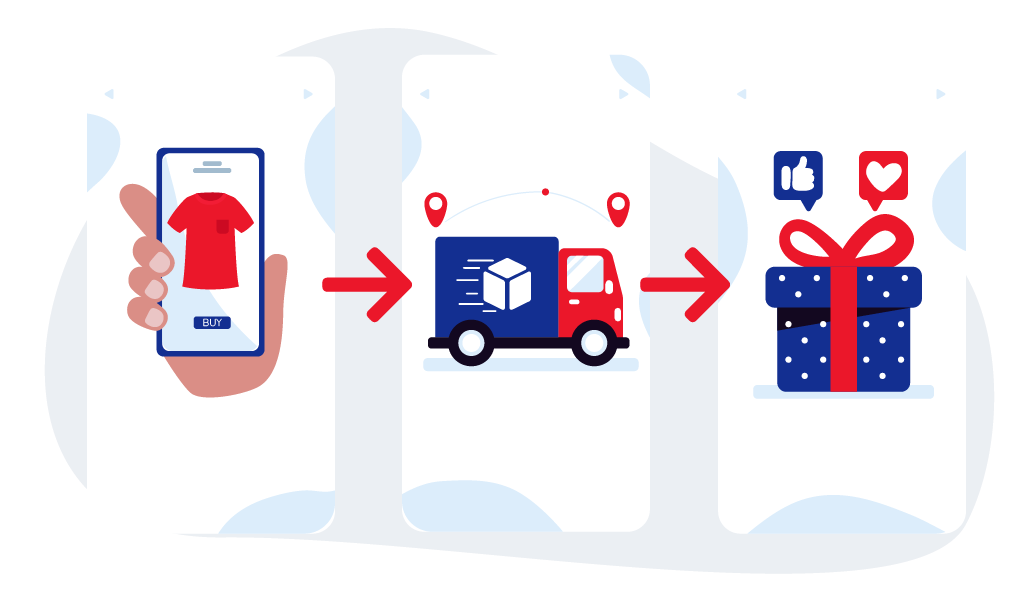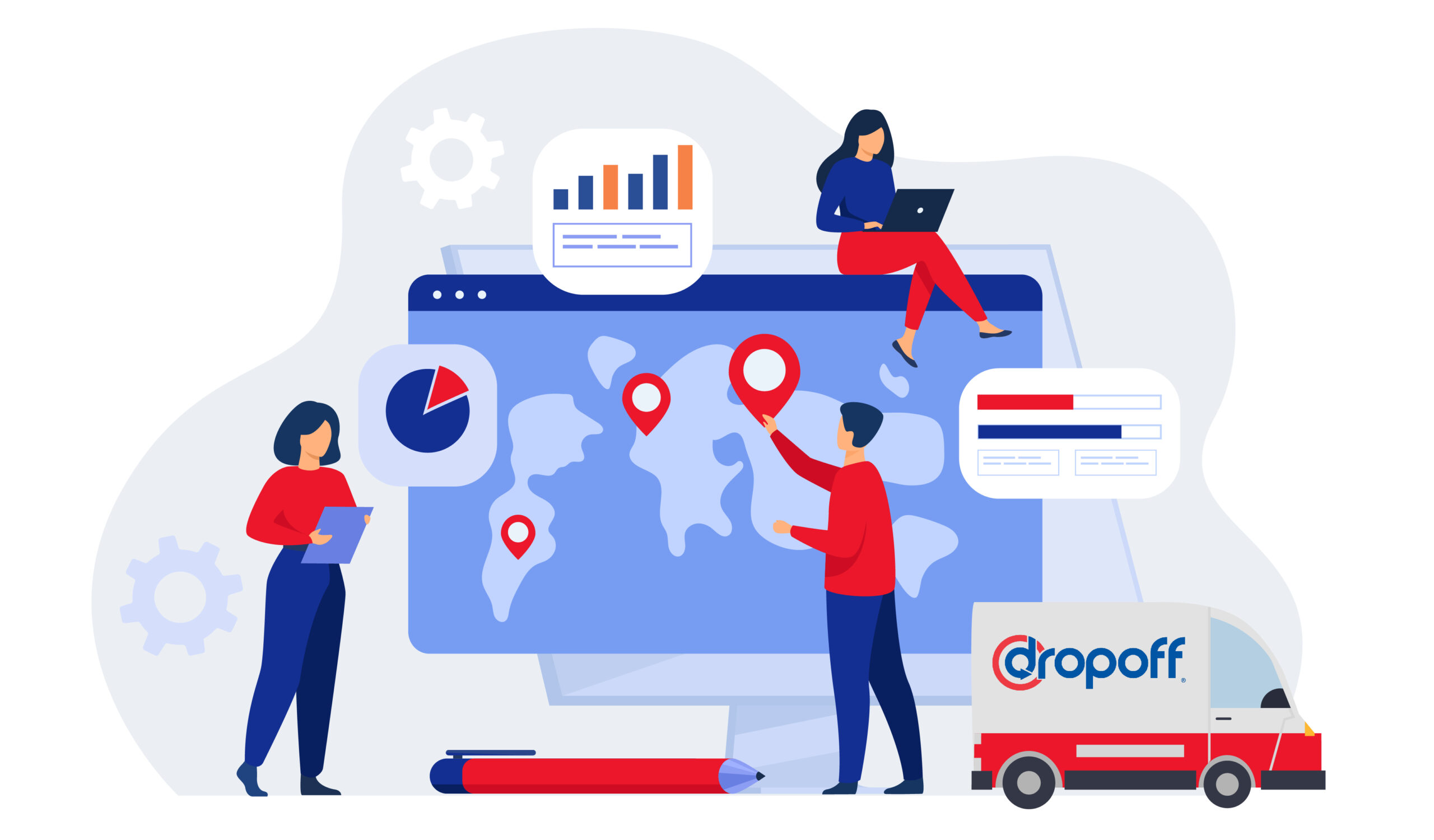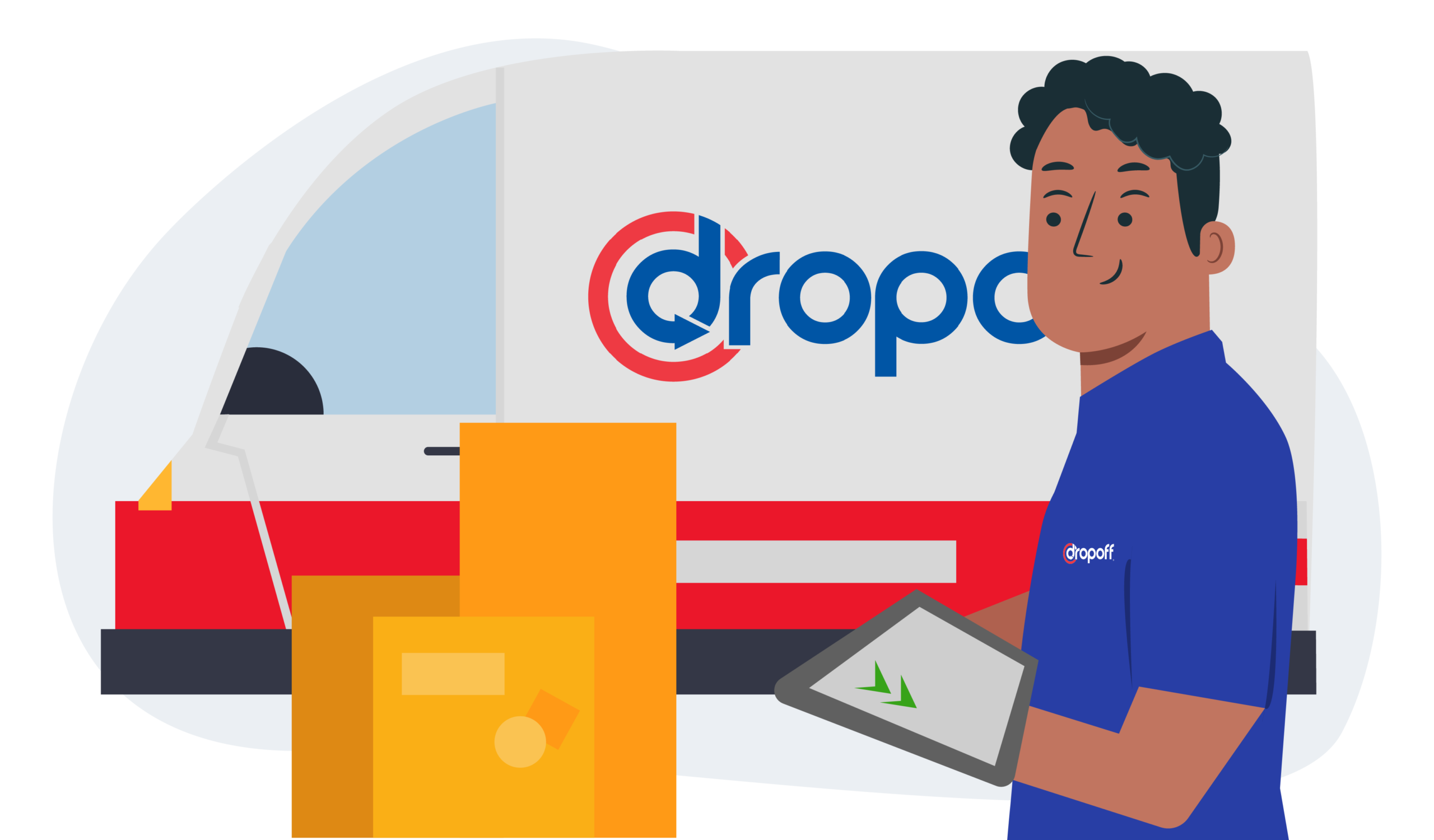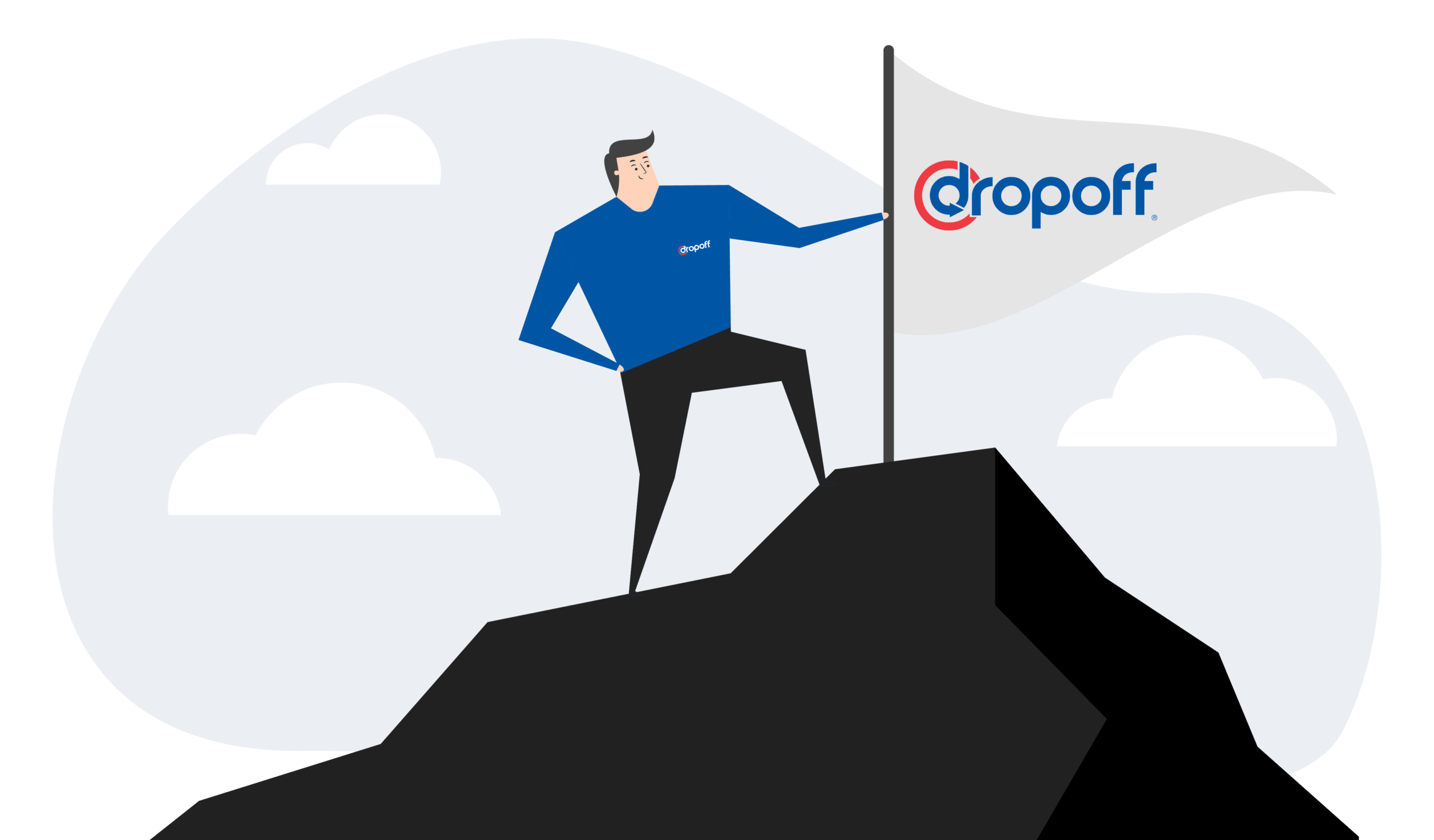4PL Logistics: A Comprehensive Guide
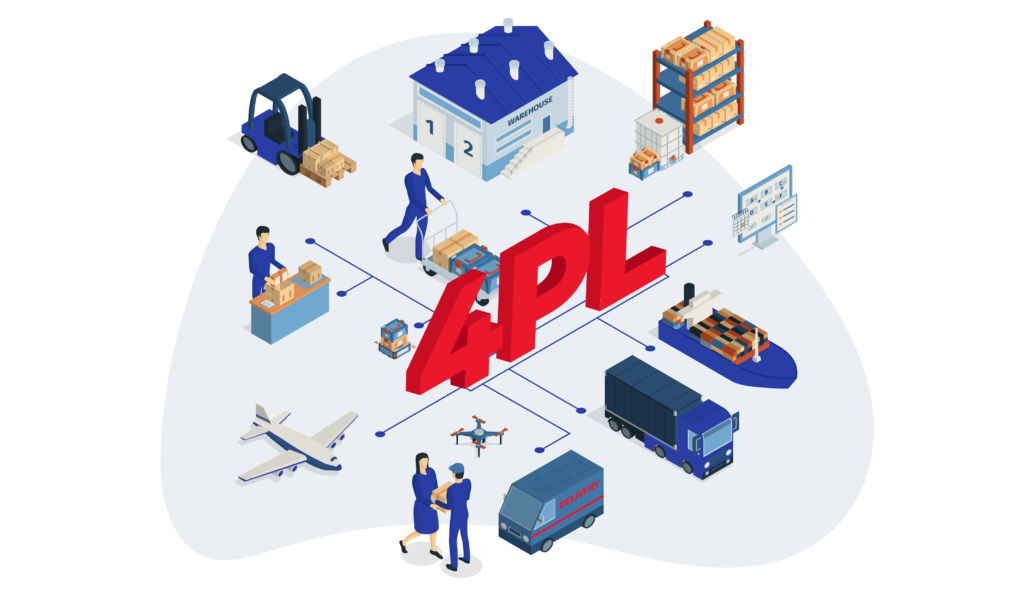
4PL logistics is a term that’s becoming more and more popular in the business world. But what does it mean? 4PL stands for fourth-party logistics, which refers to a company that gives logistical support to another company.
Put simply, 4PLs help businesses with things like shipping, order fulfillment, and inventory management.
What Is 4PL Logistics?
Fourth-party logistics is when a company outsources its entire supply chain management and logistics to one external service provider.
4PL services that aren’t offered by some 3PLs:
- Logistics strategies
- Analytics including transportation expenses, analysis, and carrier performance
- Freight sourcing strategies
- Network analysis
- Business planning
- Project management
- Control tower and network management services
- Inventory management
- Inbound, outbound, and reverse logistics management
What Is the Difference Between 3PL and 4PL Logistics?
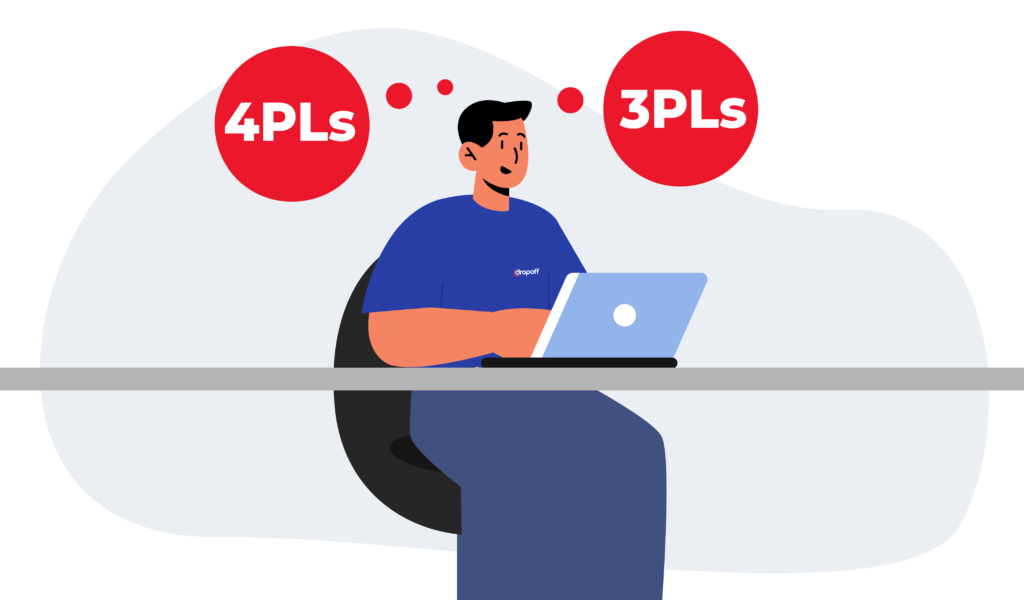
Some key differences between a 3PL and a 4PL:
- A 3PL focuses on day-to-day tasks, whereas a 4PL manages the entire supply chain.
- A 3PL is one of two contact points in the supply chain, whereas a 4PL is the single point of contact for the entire supply chain.
- A 3PL addresses transactional issues, whereas a 4PL, focuses on optimizing the entire supply chain.
- A 3PL often owns warehousing or transportation assets, whereas a 4PL is often non-asset-based.
- A 3PL relies on partners to lower costs, whereas a 4PL looks for ways to cut costs themselves.
Let’s break down some of the differences.
1. Day-to-Day Tasks
A 3PL does order fulfillment, including warehousing, picking and packing orders, shipping packages, and fleet management strategies. A 4PL manages the entire supply chain. This includes fulfillment, transportation, and technology.
2. Customer Communications
The 4PL is the main person that the customer speaks with. Basically, all communication goes through the 4PL to the 3PLs. Sometimes this causes delays since the 4PL acts as a middleman instead of the customer speaking directly with the 3PL.
3. Relationships
When working with 3PLs, the relationship is quite transactional. For instance, you’ll probably only talk about things like shipping costs. But with a 4PL, the relationship is more about working together on a long-term plan for your supply chain. A 4PL is great for organizing your supply chain better.
4. Assets
3PL providers often own warehouses, trucks, and distribution centers, which helps your business save money and run more smoothly. 4PLs are different in that they usually don’t own any physical assets. Instead, they focus on providing logistics expertise and finding the best suppliers for your company.
5. Cost Reduction
3PLs have a lot of partners and resources that help cut down on costs and improve efficiency. 4PLs focus on cutting down the entire operational cost of your supply chain while improving performance. They help you cut costs in many ways, by bundling services like lean manufacturing, reverse logistics, and optimizing procurement practices.
Check out our guide on on-demand logistics!
How the 4PL Process Works
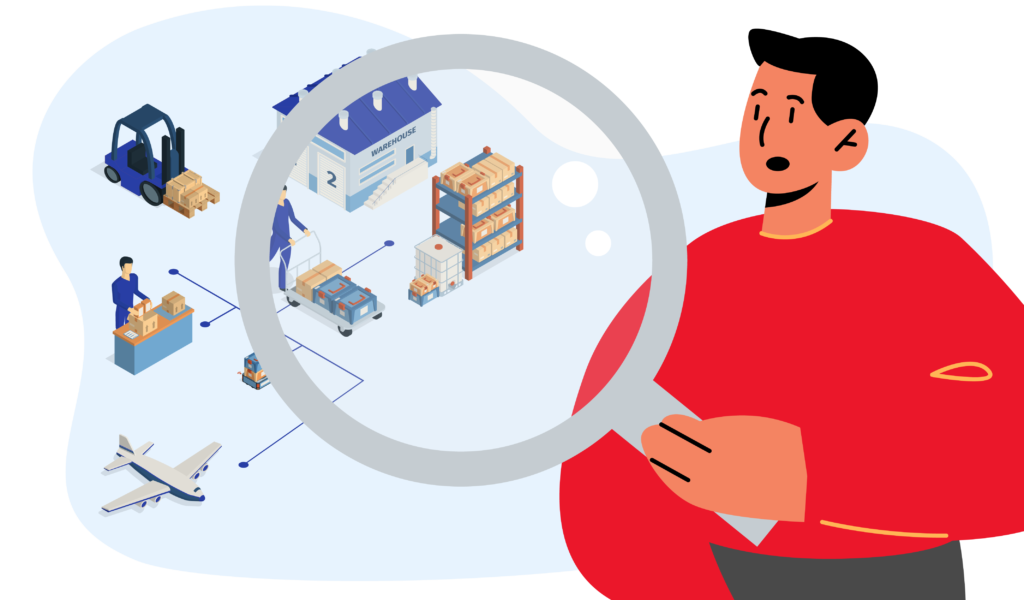
4PLs manage and oversee the entire supply chain on the customer’s behalf, including their relationship with a 3PL.
Here’s a good example of how a 4PL would work with an online business.
Phase 1: Transportation
A 4PL works with the manufacturer to prepare the finished goods for delivery. The 4PL company will then send the goods to one or multiple warehouses that a 3PL company runs.
Phase 2: Warehousing
After your products are transported to one or more warehouses, a 3PL service will take care of the day-to-day tasks, like receiving and storing inventory, picking and packing boxes, and shipping orders.
Phase 3: Inventory Management
4PLs use inventory management software to track inventory levels to keep their customers informed at all times.
Phase 4: Shipping
The last phase of the 4PL process is last-mile delivery. The 4PL will work with a 3PL to pick up orders from the 3PL’s warehouse and then ship them out to customers.
Advantages of Using 4PL Logistics
Here are some advantages of using a 4PL:
- Better vendor organization
- Solution-oriented process
- A single view of the supply chain
- Advanced technology
- Higher returns on profit and lower expenses
Let’s take a closer look at these benefits.
1. Better Vendor Organization
A 4PL helps connect you with different logistics providers. That way, you don’t have to worry about the hassle of talking to multiple partners. They’ll make sure everything runs smoothly between the 3PLs and you.
2. Solution-Oriented Process
4PLs come up with solutions that fit exactly what your business needs instead of relying on the existing infrastructure of vendors. It’ll make it easier for you to meet the specific needs of your industry.
3. A Single View of the Supply Chain
A 4PL will connect to multiple 3PLs and give you one view of important information like KPIs, inventory, order status, shipment status, billing, and EDI. You’ll understand your supply chain better to adjust to market changes quickly. Having this level of visibility also means you can meet customer demand quickly.
4. Advanced Technology
Fourth-party logistics providers have better technology. The goal of their technology is to ease communication across the board and let you look at everything in real-time.
5. Higher Returns and Lower Expenses
You’ll likely save money using a 4PL because they’ll try and get you the lowest transportation rates possible.
Disadvantages of Using 4PL Logistics
4PLs do come with a few drawbacks:
- Limited control over the logistics process
- Existing prejudices toward other companies
- Limited internal capacity
- Higher costs
Let’s discuss these disadvantages of using a 4PL even further.
1. Limited Control Over the Logistics Process
One drawback of using a 4PL is limited logistics and fulfillment process control. This is probably good if you’re not an expert in this area. But it’s not a cheap option for smaller companies because their services will be expensive.
2. Existing Prejudices Towards Other Companies
Some 3PLs may not like other companies that don’t rely on them, making it difficult for you to work in some ways.
3. Limited Internal Capacity
Working with a 3PL will make it hard to go back to in-house logistics. You won’t have the experience, skills, or ability to run your logistics.
4. Higher Costs
Hiring a 4PL can be expensive. They would handle the entire supply chain the same way an in-house team would, which would be more expensive than other logistics management options.
Learn more about how to manage B2B logistics successfully.
Top 4PL Logistics Companies
- Accenture 4PL Services – Accenture’s supply chain solutions help create agile and successful supply chains.
- UPS 4PL Services – UPS Supply Chain Solutions provides services like designing and planning global supply chains.
- XPO Logistics: 4PL Services – XPO offers services that help companies organize their global supply chains.
- Geodis Wilson 4PL Services – Geodis offers logistics services that don’t require the company to own assets.
- Maersk 4PL Services – Maersk provides integrated supply chain services, including giving users end-to-end transparency and control.
4PL Logistics for Different Industries
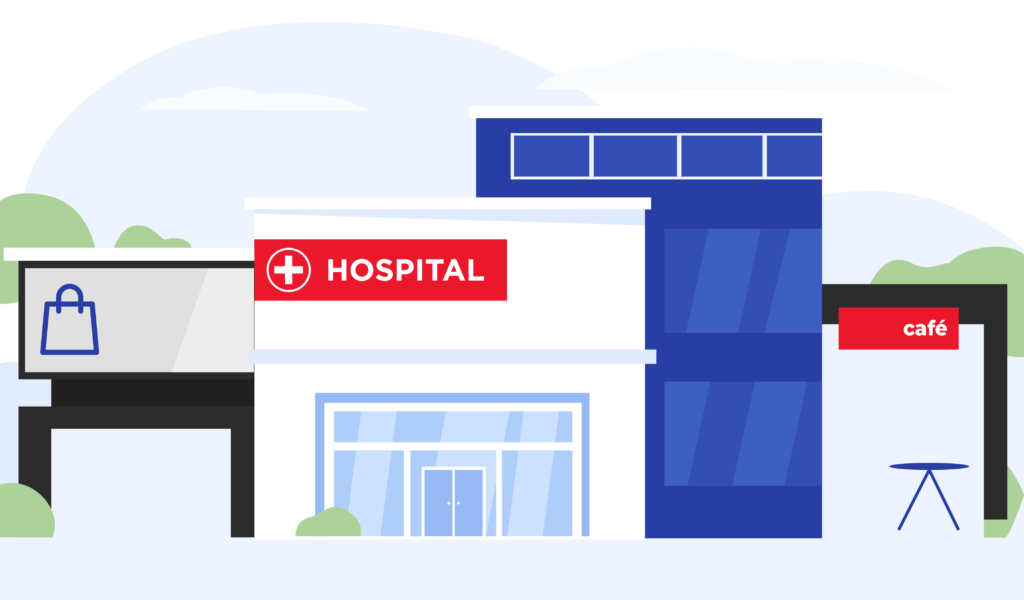
Here are different industries that find 4PLs useful in their deliveries.
- Healthcare
- Field Services
- E-Commerce and Retail
- Food and Beverages
1. 4PLs for Healthcare
Sometimes surgeons have to order medical devices like prosthetics for critical surgeries. This is called just-in-time delivery. They have to order several product sizes because they don’t know exactly which one they’ll need at the beginning of the procedure.
This is where 4PLs come in. A 4PL takes care of getting your products to the right doctors at the right time while cutting costs.
2. 4PLs for Field Services
A 4PL will help you manage your field service and supply chain. They get your products to people quickly, store them effectively, and use innovative technology. The process starts with carefully analyzing your supply chain and what you need. They use historical data and information from their customer base to figure out what parts, quantities, and areas will be best for meeting demand.
4PLs always have real-time inventory tracking, so you know what’s available. They control the entire supply chain for field service and repair organizations, including warehousing, fulfillment, transportation, and technology.
3. 4PLs for E-Commerce and Retail
4PLs can create a supply chain network that manages the flow of products across all platforms. The retailer gets to allocate inventory and meet customer demand, no matter where the inventory is.
3PLs have been used by retailers a lot over the years, but now that e-commerce is becoming more popular, retailers are switching to an omnichannel logistics approach to keep customers happy.
4. 4PLs for Groceries, Food, and Beverages
You need good logistics if you need to transport items like groceries and beverages. 4PLs are especially useful because they focus on keeping waste at a minimum. This is good if you care about storing food and drinks.
3PL Vs. 4PL Logistics: What’s Best for Your Business?
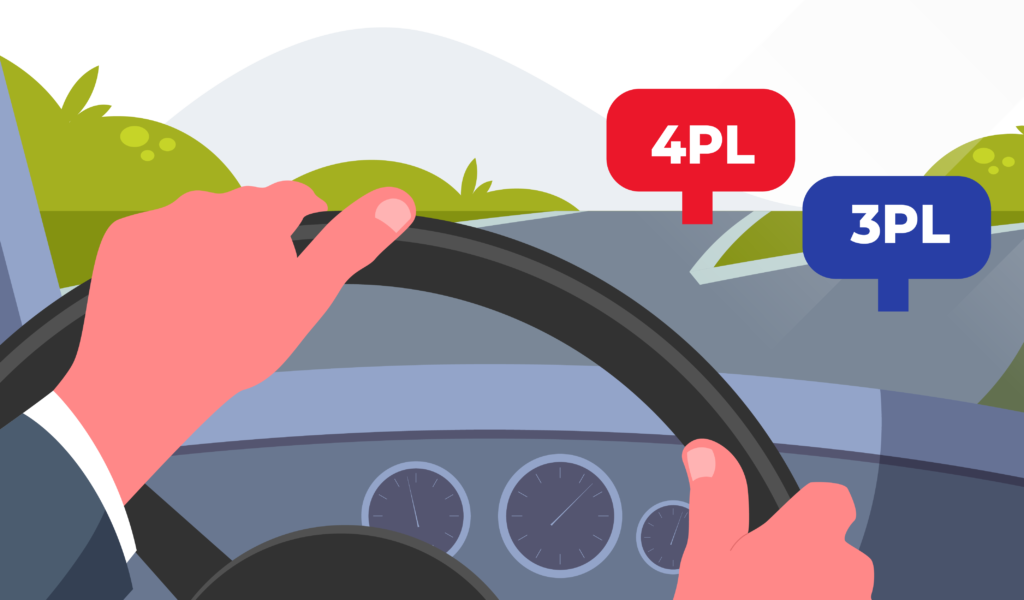
It depends on what your company needs. These are the questions you need to ask:
- ‘How much do I want to be in control?’
- ‘How much work can I do by myself?’
- ‘Do I have enough knowledge?’
- ‘How much flexibility do I need?’
Here are three great tips for choosing between a 3PL and 4PL logistics solution.
1. If you’re just starting out, use in-house fulfillment.
If you’re a startup business, start by fulfilling orders yourself. This is called the “in-house” model and is definitely not scalable because packing and shipping orders are such time-consuming tasks. It might even distract you from other business areas, like developing new products or marketing your company.
2. If you’re experiencing rapid growth, use a 3PL.
Outsourcing fulfillment will help grow your business quickly. A 3PL will take care of the order fulfillment process for you, including eCommerce warehousing, inventory management, picking and packing, and working with carriers to ship orders to customers.
3. If you’re reaching enterprise-level, use a 4PL.
If you’re looking for a company to manage your supply chain, you might consider a 4PL. But this will keep you further from your supply chain. You’ll have less control over what is happening. Because of the lack of control, fast-growing eCommerce businesses decide to work with a 3PL instead.
How Dropoff Can Help
Here at Dropoff, we like to think of ourselves as the final piece of the puzzle when it comes to your logistics needs. We work with other 3PLs and 4PLs to become a part of their courier network so that we can cover your last-mile delivery needs.
Talk with a Dropoff expert today, and we’ll design a custom logistics solution for your business.
FAQs on 4PL Logistics
1. What is 4PL?
Fourth-party logistics is when a company outsources its entire supply chain management and logistics to one external service provider.
2. What is 3PL and 4PL logistics?
3PL logistics is a service that allows you to outsource operational logistics from warehousing to delivery, letting you focus on other parts of your business.
4PL logistics is when a company outsources its entire supply chain management and logistics to one external service provider.
3. What is the difference between 3PL and 4PL logistics?
A 3PL helps you manage your fulfillment, from warehousing to shipping. A 4PL helps a 3PL provider manage fulfillment on behalf of the customer and other areas of the supply chain.

